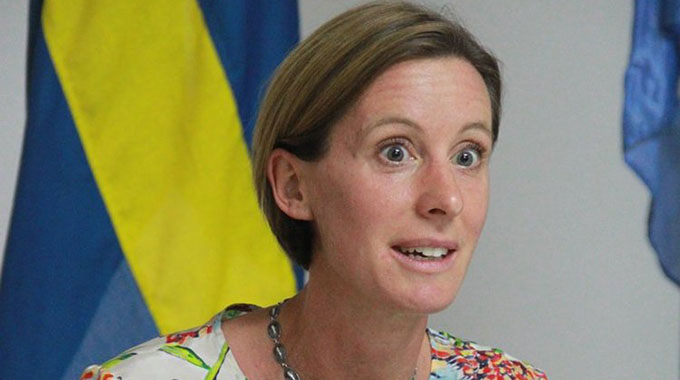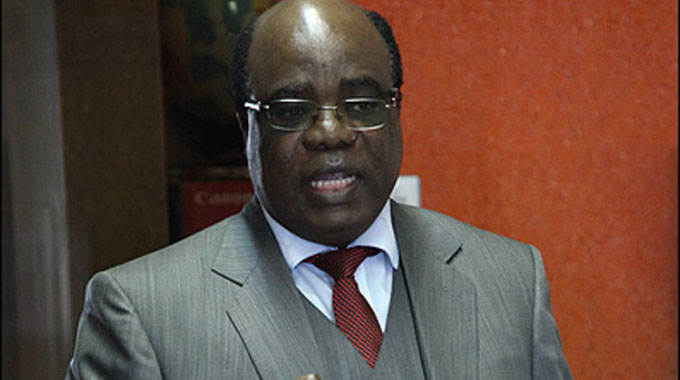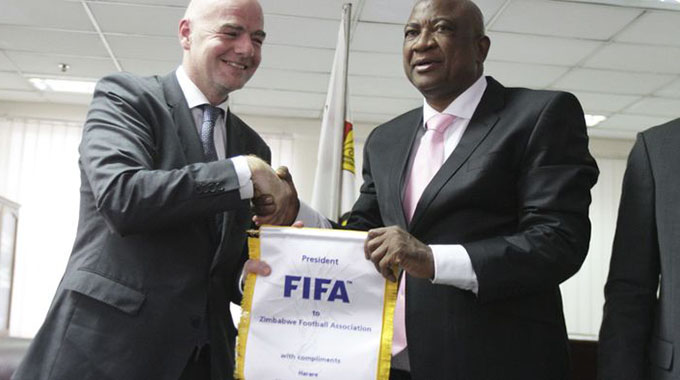Sweden avails $45m for ZRBF

Innocent Ruwende Senior Reporter
Sweden has availed a 45 million Swedish krona grant to the Zimbabwe Resilience Building Fund (ZRBF) to facilitate the timely rollout of the crisis modifier.
Crisis modification is used in resilience building as a tool to implement early actions based on early warning, in this case to better prepare the communities to withstand the shocks posed by the looming El Nino weather phenomenon.
This latest grant brings Sweden’s allocation to ZRBF to SEK 120 million.
The ZRBF is a six-year development initiative with US$75 million to contribute to increased capacity of approximately 800 000 people in 18 rural districts to protect their development gains in the face of recurrent shocks and stresses and to enable them to contribute to the socio-economic development of the country.
It is implemented by the Ministry of Lands, Agriculture, Water, Climate and Rural Resettlement supported by the United Nations Development Programme (UNDP) with generous funding and technical support from the European Union (EU); the Embassy of Sweden, and the UK Department for International Development (DFID).
Speaking at the signing ceremony, Swedish Ambassador to Zimbabwe Ms Sofia Calltorp said the protection of development gains and livelihood assets were vital building blocks for long-term adaptive and transformative capacity to reduce dependence on handouts.
“In light of the forecast food insecurity throughout the ZRBF-supported rural districts during the lean season due to the anticipated El Nino effects, the Embassy of Sweden allocated additional SEK 45 million to resilience building and to allow ZRBF to reactivate the crisis modifier mechanism to bolster the resilience of beneficiaries, households and communities.”
UN Resident Coordinator Dr Bishow Parajuli recognised the continued generosity of the Embassy of Sweden to Zimbabwe and the work of the United Nations by committing the additional funding.
“ZRBF brings humanitarian and development nexus by supporting the protection and sustainability of livelihoods of targeted rural vulnerable beneficiaries with an overall objective of weaning them out from humanitarian assistance over the cycle of the fund.
“ZRBF has a built-in innovative mechanism to address emergent and residual vulnerabilities through activating crisis modifier when needed. Zimbabwe, like the rest of Southern Africa, is bracing for yet another El Nino-induced dry spell with 80 percent likelihood of below to average rainfall according to meteorological forecast and nearly 2,4 million people will need assistance by January 2019 according to the latest estimates by the Zimbabwe Vulnerability Assessment Committee,” said Dr Parajuli.
UNDP country director Mr Georges van Montfort said: “With the additional support from the Embassy of Sweden, the ZRBF crisis modifier targets to cushion 226 800 people in 18 districts from the adverse effect of the El Nino and ringfence investments made so far in building resilience of the communities.”
In a speech read on his behalf by an acting director in the Ministry of Lands, Agriculture, Water, Climate and Rural Settlement, Mr William Makotose, permanent secretary Mr Ringson Chitsiko said noting early warning system as an important pillar of resilience building.
“I thank the Government of Sweden for providing the resources which will go a long way in building the resilience of our communities and will make strategic investment in safeguarding livelihoods and development gains made by the ZRBF-targeted communities.”







Comments